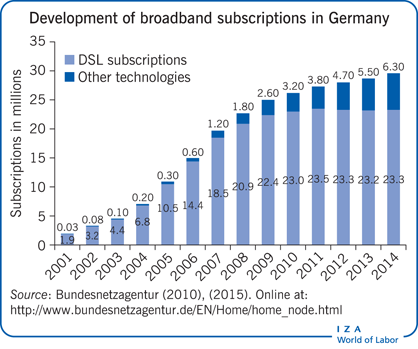Elevator pitch
The internet has transformed the way in which voters access and receive political information, such that it has circumvented the filtering of information previously undertaken by editorial offices. Consequently, consumers have had to learn how to filter relevant information themselves. The introduction phase of the internet coincided with a decreasing voter turnout, possibly due to “information overload” or less-focused political information. However, the subsequent rise of social media may help reverse the negative effect on turnout. But this poses challenges for regulatory policy. Understanding the internet’s effects on the consumption of information is also relevant for how voters view labor policies.

Key findings
Pros
The internet can provide direct and cheap access to a large pool of information.
More information can lead to users making better-informed decisions.
Low entry costs facilitate the dissemination of information, foster competition, and increase the variety of information.
More competition in the media market might imply less filtering by editorial offices and less pre-selection of information.
The emergence of social media has created new participation and dissemination platforms.
Cons
Users have to learn how to filter online information efficiently, which takes time.
If consumers cannot filter the relevant information they may face an information overload and consequently make ill-informed decisions.
Internet-based technologies, such as search engines, help filter information but may also introduce a new source of bias.
The crowding-out of traditional media may lower the quality of information online.
There is competition from alternative uses of time spent online, e.g. on entertainment.